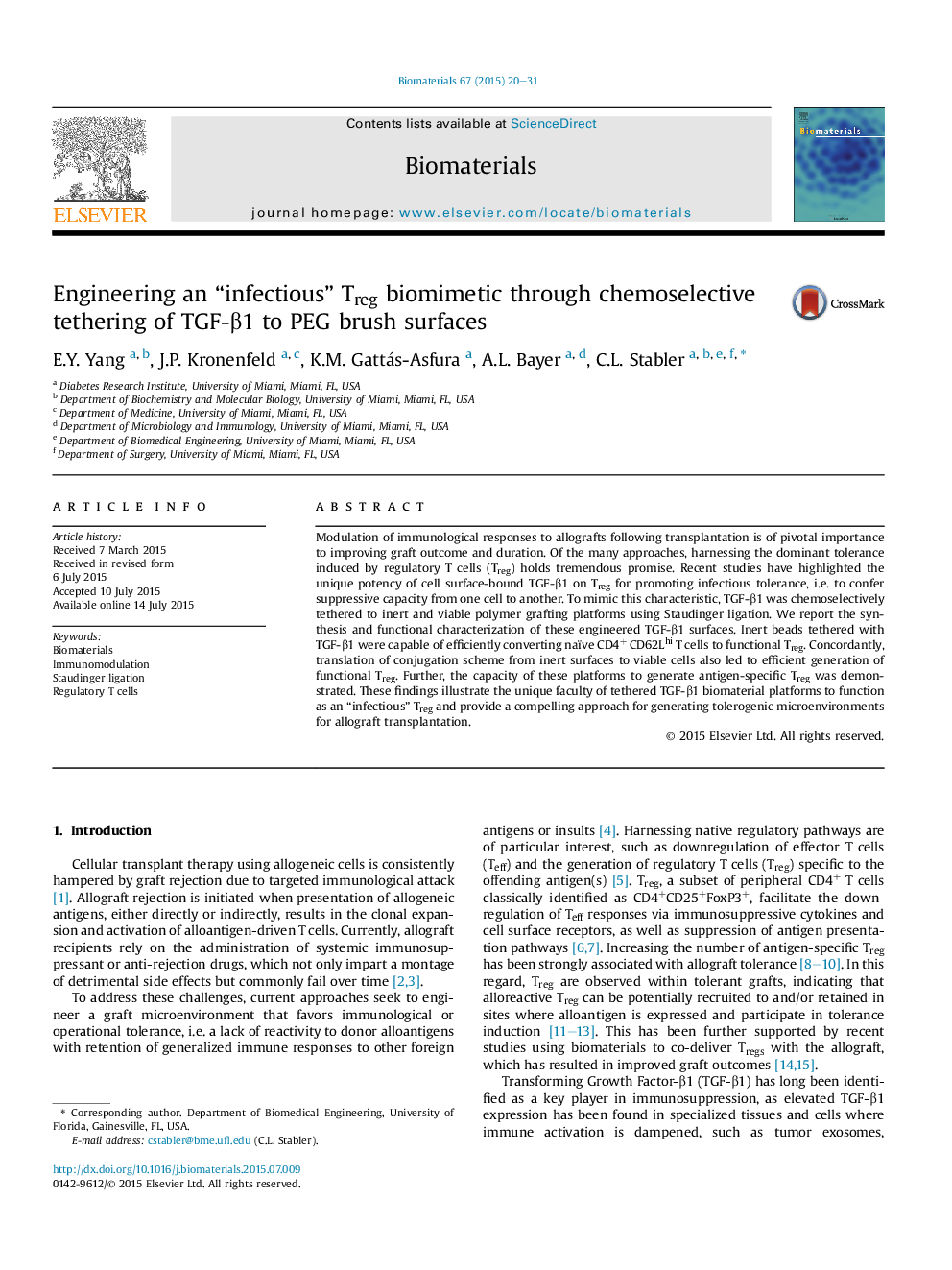| Article ID | Journal | Published Year | Pages | File Type |
|---|---|---|---|---|
| 6485496 | Biomaterials | 2015 | 12 Pages |
Abstract
Modulation of immunological responses to allografts following transplantation is of pivotal importance to improving graft outcome and duration. Of the many approaches, harnessing the dominant tolerance induced by regulatory T cells (Treg) holds tremendous promise. Recent studies have highlighted the unique potency of cell surface-bound TGF-β1 on Treg for promoting infectious tolerance, i.e. to confer suppressive capacity from one cell to another. To mimic this characteristic, TGF-β1 was chemoselectively tethered to inert and viable polymer grafting platforms using Staudinger ligation. We report the synthesis and functional characterization of these engineered TGF-β1 surfaces. Inert beads tethered with TGF-β1 were capable of efficiently converting naïve CD4+ CD62Lhi T cells to functional Treg. Concordantly, translation of conjugation scheme from inert surfaces to viable cells also led to efficient generation of functional Treg. Further, the capacity of these platforms to generate antigen-specific Treg was demonstrated. These findings illustrate the unique faculty of tethered TGF-β1 biomaterial platforms to function as an “infectious” Treg and provide a compelling approach for generating tolerogenic microenvironments for allograft transplantation.
Related Topics
Physical Sciences and Engineering
Chemical Engineering
Bioengineering
Authors
E.Y. Yang, J.P. Kronenfeld, K.M. Gattás-Asfura, A.L. Bayer, C.L. Stabler,
